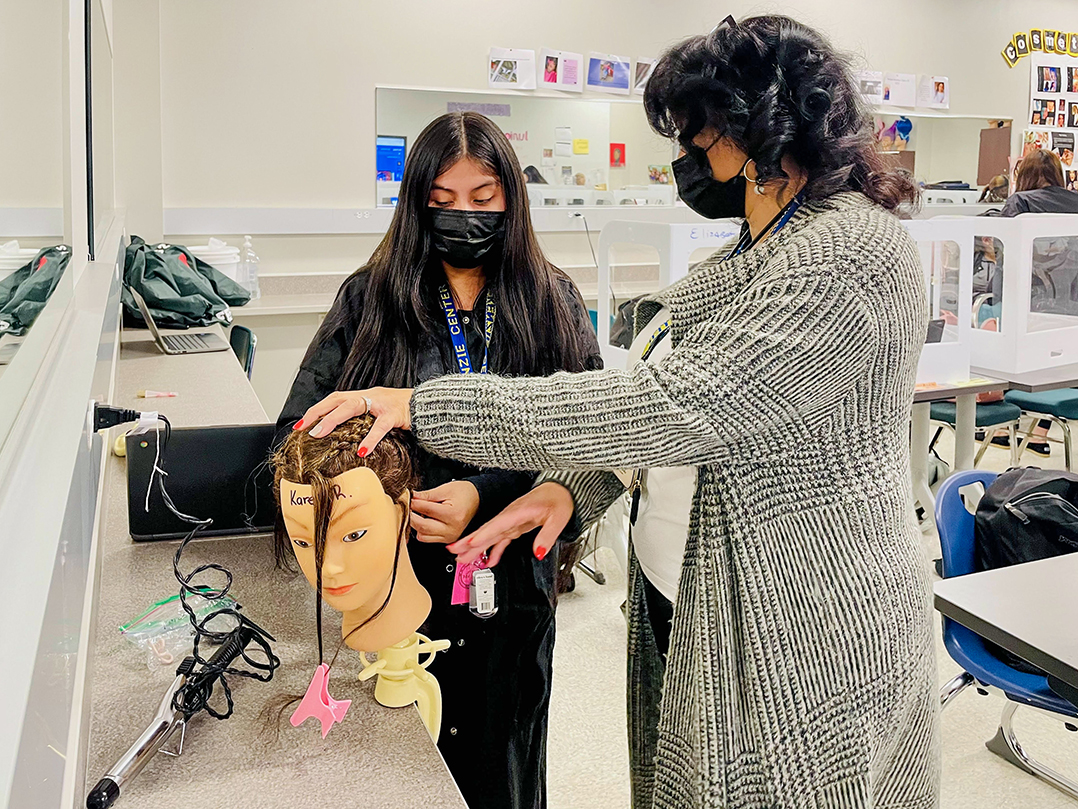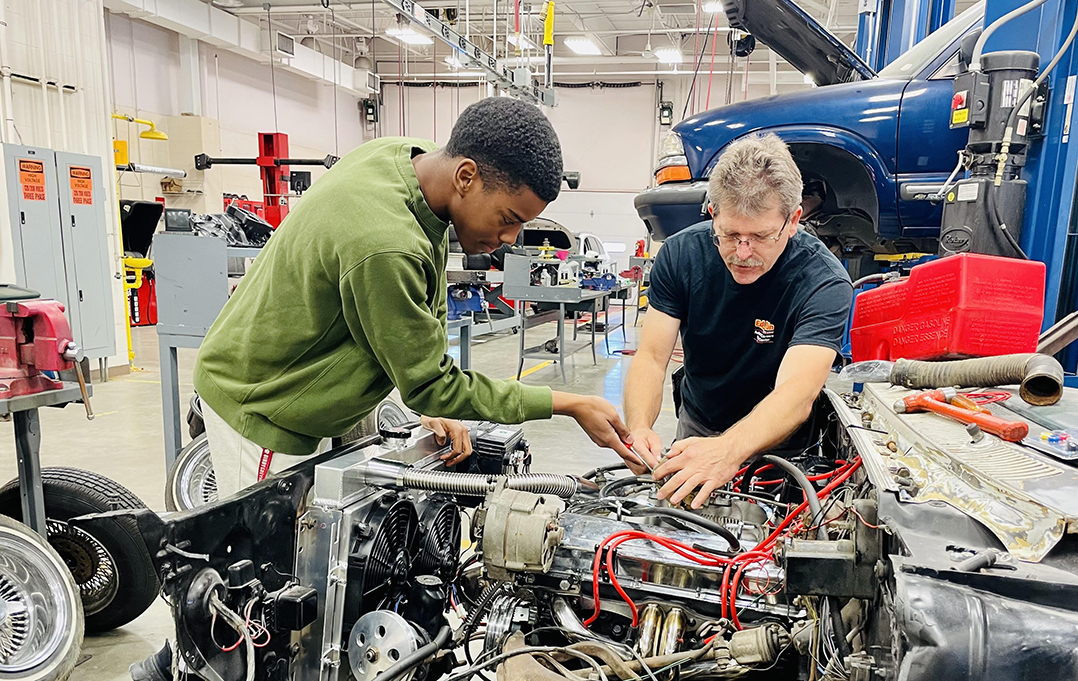At the McKenzie Center for Innovation and Technology in Lawrence, hands-on experience is cherished. That’s why Director Mari Swayne said as many as half of its teachers – known as ‘workplace specialists’ — began their professional careers in the trades they teach.
Automotive instructor Randy Craig started at a Chrysler training center in Cincinnati 18 years ago. Even then, he said the need for automotive technicians was great.
“I was sitting there with 10 other automotive technicians, and we were looking around and the average age of a technician going to training was 50 years old,” Craig said. “I knew back then there was a big void in this profession.”
Craig left the automotive industry after he began to lose the use of his hands. When he heard about the opportunity with the McKenzie Center for Innovation and Technology to teacher a trade he loved, he seized it.
“I couldn’t believe this facility and how nice it was,” Craig said.
Craig became certified to teach, a process that took about a year.
“It was well worth it,” he said. “What I’m looking at nowadays is, these students of ours, they can book learn about anything, but the world becomes a different thing when you put your hands on it. Tearing that motor apart and understanding all the parts involved and then you spec it and put it back together and make it run — that experience in here with hands is essential to them to go into the field of auto repair.”
Engineering instructor Elizabeth Sobota also didn’t set out to be an educator. She earned an engineering degree from Rose-Hulman Institute of Technology and worked in engineering before deciding to stay home with her children. Then, she heard about the opportunity to get her teaching license and teach at McKenzie Center.
“It’s a good fit because of the schedule, and I can be home when my kids are home,” she said. “I was already involved here with the robotics team as a coach, and it was an opportunity to do more of what I loved. I really enjoy passing on that knowledge and help make sure there are enough people entering these fields.
“The future has a huge importance on STEM jobs and there’s a high demand, so I’m making sure that demand is met, and the students have an opportunity to learn from someone who really knows that information.”
Cosmetology instructor Casandra Evans was similarly inspired to teach.
“It’s very fulfilling because you have that moment to mold your industry,” she said. “My love for the cosmetology industry turned into a chance to mold stylists in the industry now. It’s hard work but it’s fulfilling, and I feel like I’ve left my thumbprint on what goes on in the industry and making sure I have good stylists working in the industry.”
Advanced culinary arts teacher Gracie Sahm is one of McKenzie Center for Innovation and Technology’s workplace specialists, but she started out with a teaching degree. Sahm majored in journalism and teaching English but then entered the restaurant industry, where she worked for 22 years.
“I was fortunate in having gone through getting the education license, so the teaching part was easy for me,” she said. “The benefit of having 22 years in the restaurant industry helps with what I do here in teaching advanced culinary arts.”

Helping students
McKenzie Center for Innovation and Technology Director Mari Swayne said having industry experts become teachers is beneficial for students.
For example, in Randy Craig’s automotive class, a student might not enjoy geometry but can apply what’s learned in geometry to a task, such as putting an engine back together.
“(Craig) is a master mechanic. He’s been doing it for 30 years,” Swayne said. “He is teaching those students, and even if there’s a kid who says, ‘I’m not good at geometry,’ he’ll show them, ‘You do know you just did geometry.’ Together with the traditional teacher and our workplace specialists, it really does a great job providing our students with project-based learning.
“Every day when I go to classrooms, I can go up to any student and it’s clear they’re learning everything they need to learn.”



